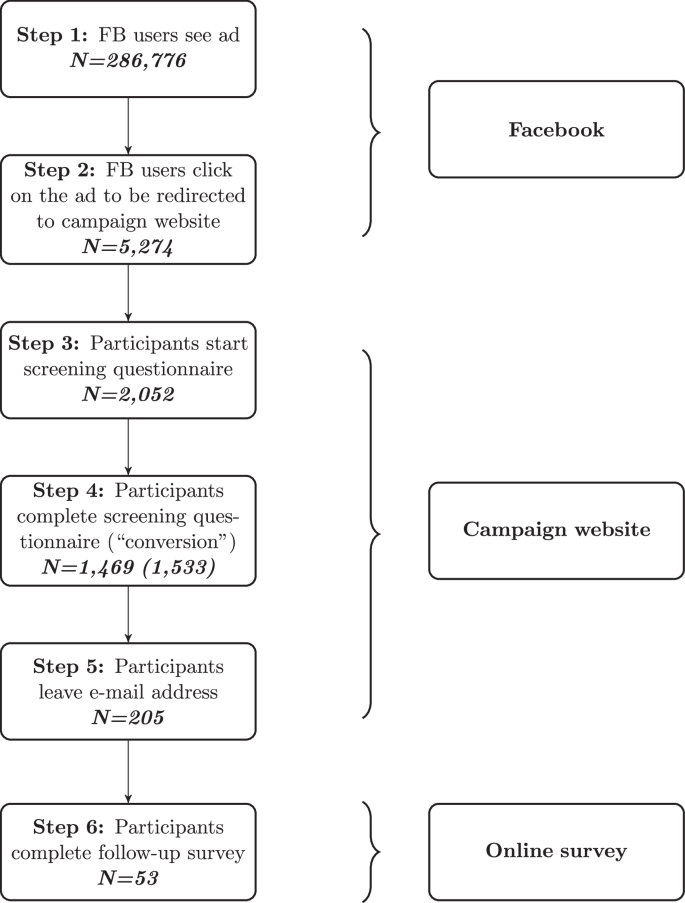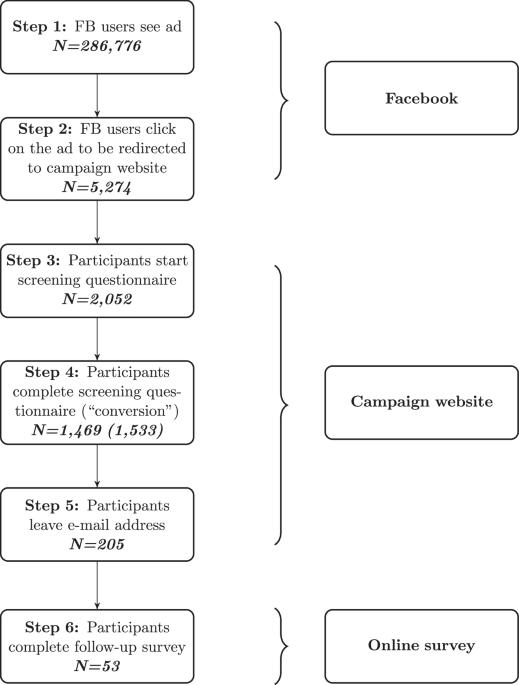社交媒体能否鼓励糖尿病自我筛查?针对印度尼西亚 Facebook 用户的随机对照试验
IF 12.4
1区 医学
Q1 HEALTH CARE SCIENCES & SERVICES
引用次数: 0
摘要
说服没有非传染性疾病(NCDs)明显症状的人接受健康检查仍然是一项挑战,尤其是在中等收入国家,这些国家对 NCD 的认识不足,但发病率却很高。我们评估了在 Facebook 上开展的宣传活动能否鼓励印度尼西亚的个人接受在线糖尿病自我筛查。我们利用 Facebook 的广告功能随机发布与糖尿病风险和后果相关的图形广告。根据参与者的风险评分,他们会收到接受专业筛查的建议。在短短三周内,我们就接触了近 30 万人。超过 1400 人完成了筛查,每人花费约 0.75 美元。标有 "糖尿病后果 "和 "震惊 "的两则广告的效果优于其他所有广告。一项后续调查显示,许多高危受访者已经安排了专业筛查。成本效益分析表明,我们的宣传活动能以约 9 美元的价格多诊断出一名糖尿病患者。本文章由计算机程序翻译,如有差异,请以英文原文为准。


Can social media encourage diabetes self-screenings? A randomized controlled trial with Indonesian Facebook users
Nudging individuals without obvious symptoms of non-communicable diseases (NCDs) to undergo a health screening remains a challenge, especially in middle-income countries, where NCD awareness is low but the incidence is high. We assess whether an awareness campaign implemented on Facebook can encourage individuals in Indonesia to undergo an online diabetes self-screening. We use Facebook’s advertisement function to randomly distribute graphical ads related to the risk and consequences of diabetes. Depending on their risk score, participants receive a recommendation to undergo a professional screening. We were able to reach almost 300,000 individuals in only three weeks. More than 1400 individuals completed the screening, inducing costs of about US$0.75 per person. The two ads labeled “diabetes consequences” and “shock” outperform all other ads. A follow-up survey shows that many high-risk respondents have scheduled a professional screening. A cost-effectiveness analysis suggests that our campaign can diagnose an additional person with diabetes for about US$9.
求助全文
通过发布文献求助,成功后即可免费获取论文全文。
去求助
来源期刊

NPJ Digital Medicine
Multiple-
CiteScore
25.10
自引率
3.30%
发文量
170
审稿时长
15 weeks
期刊介绍:
npj Digital Medicine is an online open-access journal that focuses on publishing peer-reviewed research in the field of digital medicine. The journal covers various aspects of digital medicine, including the application and implementation of digital and mobile technologies in clinical settings, virtual healthcare, and the use of artificial intelligence and informatics.
The primary goal of the journal is to support innovation and the advancement of healthcare through the integration of new digital and mobile technologies. When determining if a manuscript is suitable for publication, the journal considers four important criteria: novelty, clinical relevance, scientific rigor, and digital innovation.
 求助内容:
求助内容: 应助结果提醒方式:
应助结果提醒方式:


